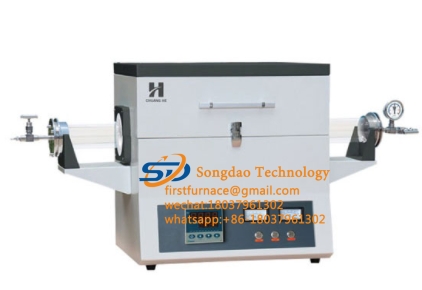- 18
- Jan
Introduction of Automatic Control of Furnace Temperature in Vacuum Atmosphere Furnace
Introduction of Automatic Control of Furnace Temperature in Vacuum Atmosphere Furnace
Vacuum atmosphere furnace furnace temperature automatic control commonly used regulating laws include two-position, three-position, share, share integral and share integral differential. Resistance furnace temperature control is such a reaction conditioning process. Compare the actual furnace temperature and the atmosphere furnace temperature to obtain the error. After the error is processed, the control signal is obtained to adjust the thermal power of the resistance furnace, and then the furnace temperature control is completed.

1. The control effect (PID control) is generated according to the error share, integral and derivative, which is a widely used control form in process control.
2, two-position conditioning–it only has two states: on and off. When the furnace temperature of the vacuum atmosphere furnace is lower than the set value, the actuator is fully open; when the furnace temperature is higher than the set value, the actuator is fully closed. The actuator is usually a contactor.
3. Three-position conditioning-it has two given values of upper and lower limits. When the furnace temperature of the vacuum atmosphere furnace is lower than the given value of the lower limit, the contactor is fully open; when the furnace temperature is between the given value of the upper limit and the lower limit, it is executed Part of the actuator is open; when the furnace temperature of the atmosphere furnace exceeds the upper limit set value, the actuator is fully closed. For example, when the tubular heater is the heating element, three-position conditioning can be used to complete the difference in heating and heat preservation power.
In addition, when purchasing a vacuum atmosphere furnace, you must first determine its power. At the same time, you should consider its electric heating efficiency and power factor. There are two ways to determine the power.
One is the heat balance method. According to the law of conservation of energy, the total heat consumed by the vacuum atmosphere furnace is equal to the total heat emitted by the electric heating element. The total heat consumed includes the effective heat of heating the metal and the heat loss of the atmosphere furnace. The heat is converted to the total power, and the electric heating efficiency is taken into account, and then multiplied by the power reserve coefficient. This coefficient estimates that the furnace productivity may increase and the heat loss may increase. The power reserve coefficient is for continuous operating atmosphere furnaces and intermittent operating atmospheres. The other type of furnace is the empirical method, which mainly determines the furnace power according to the furnace volume.
